How Big of an Essential Oil Diffuser Do I Need
Are you curious about essential oil diffusers and how they can enhance your space?
In this article, we will explore the world of essential oil diffusers, including how they work, their benefits, and what factors to consider when choosing one.
From room size to run time, noise level to design, we will cover everything you need to know to find the perfect diffuser for your needs.
Stay tuned to learn about different types of diffusers, safety precautions, and more!
Key Takeaways:
What is an Essential Oil Diffuser?
An essential oil diffuser is a device that disperses essential oils into the air, creating a fragrant ambiance. It’s commonly used in homes, spas, and wellness centers to enhance the environment.
Essential oil diffusers work by breaking down the essential oil into small molecules, which are then released into the air in a mist form. This process allows the oils to stay suspended in the air for longer periods, providing continuous benefits.
- Diffusers come in various types, including ultrasonic, nebulizing, heat, and evaporative diffusers, each with its unique way of dispersing oils.
The benefits of using an essential oil diffuser are numerous. Essential oils offer therapeutic properties that can promote relaxation, improve mood, boost immunity, and purify the air. Diffusing oils can also help alleviate stress, anxiety, and insomnia, creating a calming atmosphere. Certain essential oils have antibacterial and antiviral properties, which can help in maintaining a healthy environment.
Common usage scenarios for essential oil diffusers include creating a spa-like ambiance at home, enhancing focus and concentration in workspaces, promoting better sleep in bedrooms, and disinfecting the air in shared spaces like gyms and waiting rooms. With their versatility and benefits, diffusers have become a popular choice for those seeking natural ways to improve their overall well-being.
How Does an Essential Oil Diffuser Work?
An essential oil diffuser works by combining water and essential oils to produce a fine mist that is released into the air. The device uses ultrasonic vibrations or heat to break down the oil particles into a breathable mist.
When water and essential oils are added to the diffuser, the ultrasonic vibrations create microscopic droplets merging with the oils, forming a fine mist. The mist is then released through the diffuser, dispersing the aromatic fragrance into the atmosphere. This mist isn’t just a pleasant scent, but it also carries the therapeutic properties of the oils, promoting relaxation and well-being. The process is gentle on the oils, ensuring their beneficial properties remain intact as they are diffused into the room.
What are the Benefits of Using an Essential Oil Diffuser?
Using an essential oil diffuser can help create a relaxing atmosphere, promote better sleep, and improve air quality. It also allows for easy diffusion of different essential oil blends to suit various moods and needs.
One of the key advantages of utilizing an essential oil diffuser is its ability to disperse scented essential oils evenly throughout a space, filling the room with a soothing aroma that can calm the mind and reduce stress levels. Along with its relaxing properties, the diffused blends of essential oils can also aid in promoting a good night’s sleep by creating a peaceful environment conducive to rest and relaxation.
Moreover, aromatherapy using essential oils through a diffuser has been known to have positive effects on emotional well-being, helping to uplift spirits, enhance focus, and even alleviate headaches. The versatility of essential oil diffusers allows you to easily switch between different aroma blends, catering to your specific preferences and needs at any given moment.
What Factors Should I Consider When Choosing an Essential Oil Diffuser?
When selecting an essential oil diffuser, consider factors such as the size of the room you want to diffuse oils in, the coverage area of the diffuser, the model specifications, and the available settings for customization.
Before making a purchase, it’s crucial to evaluate the dimensions of the space where you plan to use the diffuser. Different diffusers are designed for various room sizes, so matching the diffuser’s capacity to your room size ensures optimal performance.
Understanding the coverage area of the diffuser is vital as it determines how effectively the oils will disperse throughout the room. A diffuser with a larger coverage area is suitable for spacious areas, while a smaller one is ideal for compact spaces.
When exploring different models, pay attention to their unique features and functions. Some diffusers offer continuous misting, intermittent diffusion, lighting options, or timer settings, providing versatility for different preferences.
Having adjustable settings on the diffuser allows you to control the intensity and duration of the diffusion, catering to your specific needs and creating a personalized aromatherapy experience.
Room Size
Room size plays a crucial role in determining the effectiveness of your essential oil diffuser. Larger rooms require diffusers with higher coverage capacity to ensure the scent is evenly distributed throughout the space.
When selecting a diffuser, it’s essential to consider the square footage of the room to guarantee optimal diffusion. A larger room with high ceilings will need a diffuser that can disperse the essential oils effectively across the greater area.
Using a diffuser with inadequate coverage in a large space can lead to uneven scent distribution, leaving some areas with a strong aroma while others barely detect the fragrance. This can impact the overall ambiance and therapeutic benefits that the essential oils are intended to provide.
Run Time
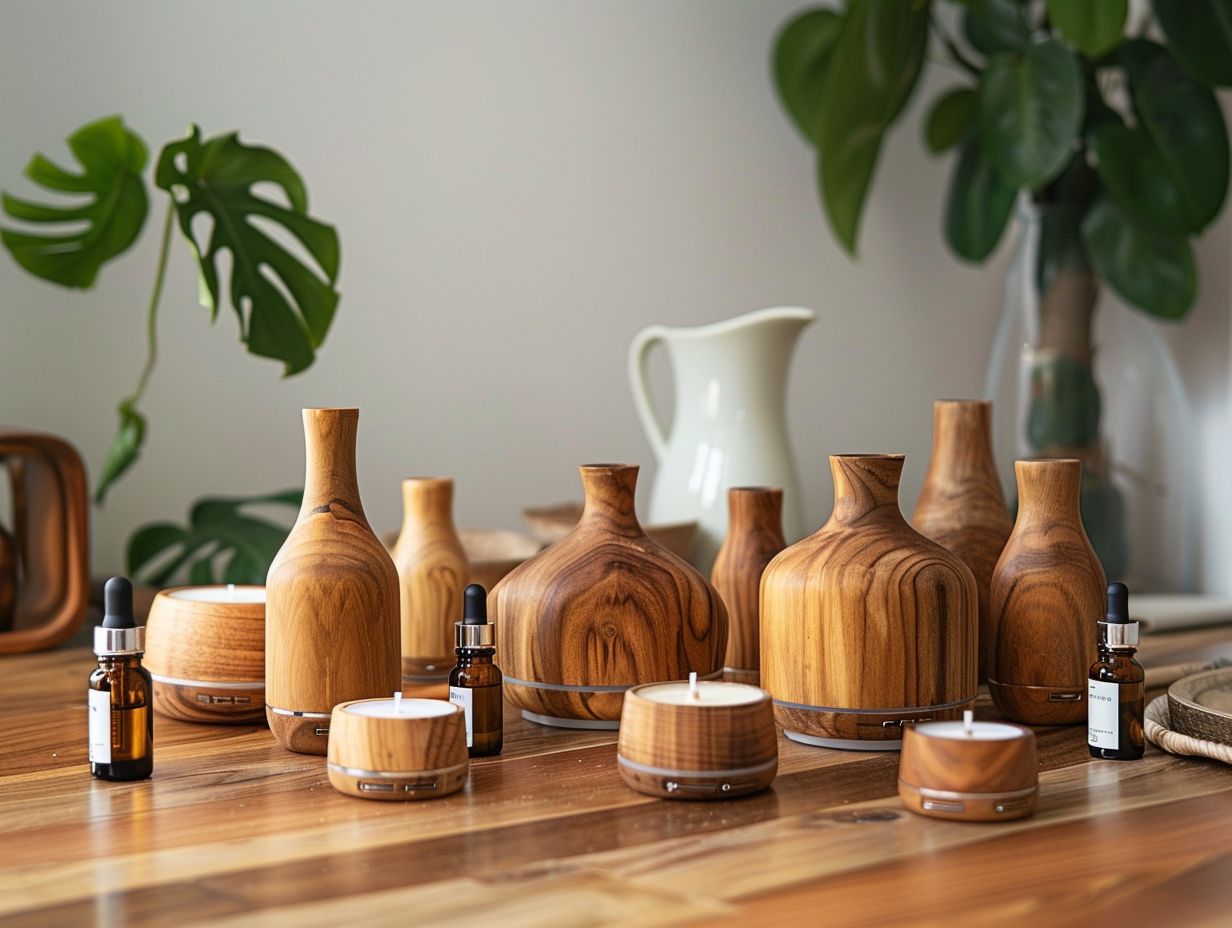
When choosing a diffuser, understanding the importance of run time can greatly impact your overall experience. The water capacity of a diffuser plays a crucial role in how long it can operate continuously. A larger water tank means that the diffuser can run for extended periods without interruption, providing you with continuous diffusion of essential oils throughout your space.
Diffusers with larger water capacities are ideal for those who prefer to enjoy the benefits of essential oils over an extended period without having to constantly monitor and refill the water tank. This convenience not only saves time but also ensures a consistent and uninterrupted diffusion experience.
Noise Level
When choosing an essential oil diffuser, consider the noise level it produces during operation. Opt for models that operate quietly to avoid disruptions, especially during sleep or relaxation times.
Aside from creating a calming ambiance and dispersing delightful scents, noise level is a crucial factor to ponder over when selecting a diffuser. A quiet diffuser ensures a peaceful environment, promoting better sleep quality and undisturbed relaxation.
Along with noise level, prioritizing power efficiency is essential for maintaining a silent operation. Opting for energy-efficient models not only reduces environmental impact but also ensures a cost-effective and quiet diffusing experience.
Design and Aesthetics
The design and aesthetics of an essential oil diffuser can complement your decor and enhance the overall ambiance of the space. Choose a diffuser that matches your style preferences and offers high-quality construction.
Considering the design aspect when selecting an essential oil diffuser is crucial, as it can act as both a functional device and a decorative item in your room. Matching the diffuser with your existing decor can create a cohesive and harmonious look, elevating the visual appeal of the space. A well-designed diffuser not only disperses delightful scents but also adds an element of sophistication to the room.
What Size of Essential Oil Diffuser Do I Need?
Selecting the right size of an essential oil diffuser depends on factors like room size, coverage requirements, and personal preferences. There are small, medium, and large diffusers available to cater to different needs.
How big is essential oil diffuser? Small diffusers are perfect for compact spaces like bathrooms or offices, offering a subtle aroma that doesn’t overpower. They usually cover areas up to 200 square feet efficiently.
Medium-sized diffusers are versatile, suitable for living rooms or bedrooms, covering spaces up to 400 square feet, creating a more pronounced effect.
On the other hand, large diffusers are ideal for open-plan areas or large rooms, providing an extensive coverage area of over 500 square feet, ensuring a robust diffusion of essential oils throughout the space.
Small (100ml or less)
Small essential oil diffusers, with a capacity of 100ml or less, are ideal for compact spaces or personal use. They require fewer drops of essential oil and are convenient for smaller rooms.
Due to their compact size, small diffusers can easily fit on countertops, desks, or bedside tables without taking up much space. The efficiency of these devices lies in their ability to disperse essential oils effectively despite their small size.
They are perfect for creating a cozy ambiance in a bedroom, office, or even a small living room. The smaller reservoir means that you can change scents more frequently without wasting unused oils.
Medium (100-300ml)
Medium-sized essential oil diffusers, ranging from 100-300ml, offer a balance between coverage capacity and compact design. They are suitable for medium-sized rooms and provide ample space for blending different oils.
These diffusers are highly versatile, allowing users to create personalized aromatic experiences by combining various essential oils. The medium diffusers’ larger capacity ensures more extended diffusion periods, making them ideal for continuous use throughout the day without frequent refills. Their wide coverage range efficiently disperses the scents in medium-sized spaces, filling the room with a pleasant aroma. Their compact design makes them easy to place on tables, shelves, or nightstands, seamlessly integrating into any room’s decor.
Large (300ml or more)
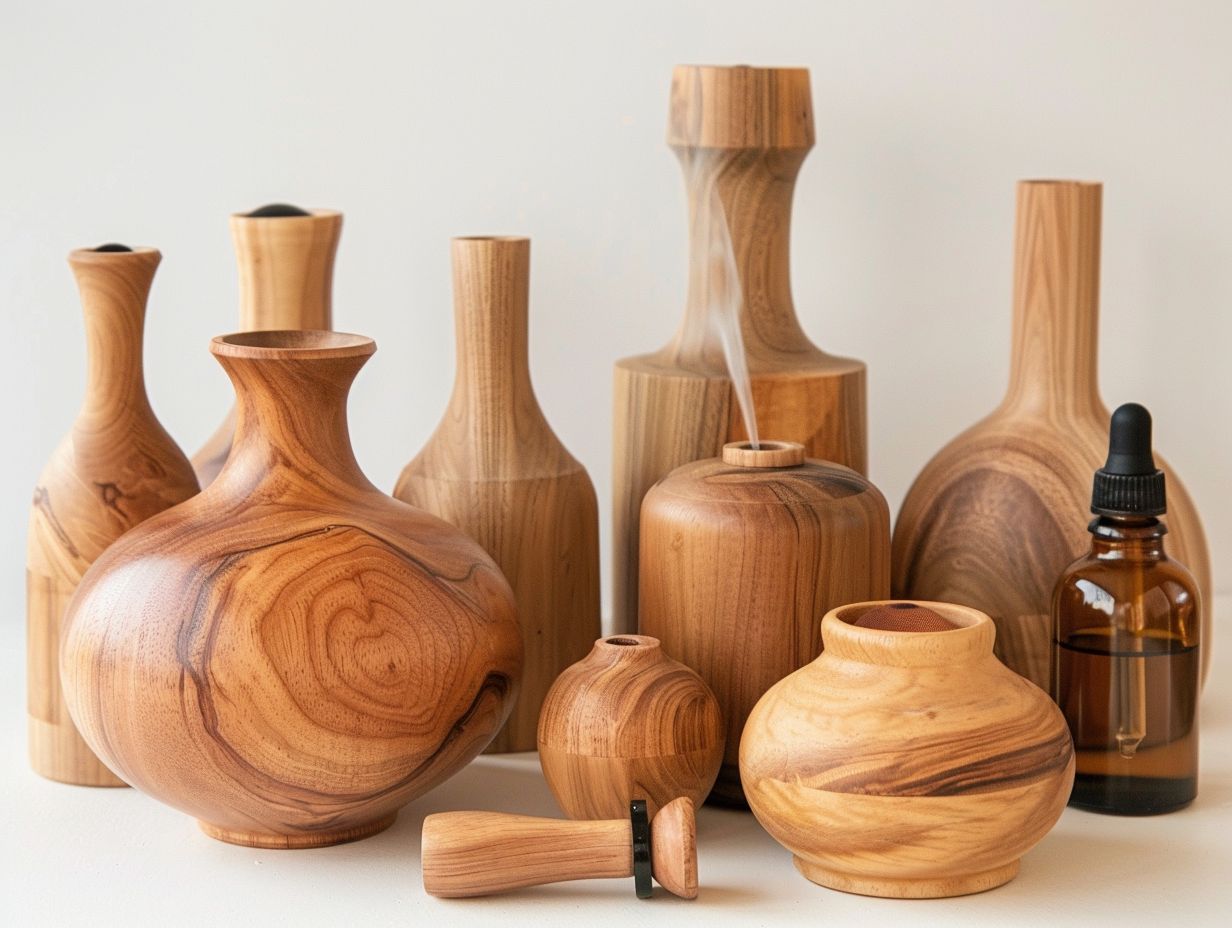
These larger diffusers are ideal for businesses, offices, or large rooms where a consistent scent is desired throughout the space. Their ability to disperse oils effectively ensures that the fragrance reaches every corner, creating a pleasant ambiance. The larger reservoir capacity means less frequent refills are needed, making them convenient for continuous use. Whether for relaxation, aromatherapy, or simply freshening up a room, these diffusers are a practical and efficient choice for long-term or large space use.
How Many Drops of Essential Oil Should I Use in My Diffuser?
The number of drops of essential oil you should use in your diffuser depends on the diffuser’s capacity, your scent preferences, and the desired strength of the aroma. Typically, 3-5 drops are recommended for small diffusers, while larger ones may require 5-10 drops.
In terms of small diffusers that hold around 100 ml of water, starting with 3 drops is a good baseline; you can adjust depending on the intensity you desire. For larger diffusers with a capacity of 200 ml and above, you can start with 5 drops and increase up to 10 drops to create a stronger aroma that can fill a larger space effectively. It’s vital to find the right balance to avoid overpowering the room with fragrance. Experimenting with the drop ranges will help you achieve the perfect scent for your environment.
What Are the Different Types of Essential Oil Diffusers?
There are several types of essential oil diffusers, including ultrasonic diffusers, nebulizing diffusers, evaporative diffusers, and heat diffusers. Each type has unique mechanisms of diffusing oils into the air.
Ultrasonic diffusers use ultrasonic vibrations to break down essential oils into tiny molecules, dispersing them as a fine mist. They are popular for their ability to maintain the oil’s therapeutic properties.
Nebulizing diffusers do not require water or heat, instead atomizing the oils into a fine mist. This type is known for its powerful scent dispersion and ability to maintain the oil’s purity.
Evaporative diffusers work by allowing the oil to evaporate into the air, suitable for smaller spaces.
Heat diffusers, on the other hand, use heat to vaporize and disperse the oils, but may alter their chemical composition.
Ultrasonic Diffusers
Ultrasonic diffusers use vibrations to disperse a mist of water and essential oils into the air. They are popular for their quiet operation and ability to maintain the integrity of oil blends.
One of the key advantages of ultrasonic technology in diffusing oils is its ability to break down essential oils into smaller particles, allowing them to be easily absorbed by the body and maximizing their therapeutic benefits. This gentle method also ensures that the aroma of the oils is diffused evenly throughout the room, creating a harmonious and relaxing environment.
Nebulizing Diffusers
Nebulizing diffusers break down essential oils into a fine mist without water dilution, providing a high-quality scent experience. They are known for their potent diffusion capabilities and therapeutic benefits.
One of the standout features of nebulizing diffusers is their unadulterated scent delivery, which ensures that the full aroma profile of the essential oils is dispersed into the air.
This method allows for a more intense and immediate fragrance experience compared to other types of diffusers that require dilution. The therapeutic advantages of nebulizing diffusers lie in the fact that the oils are not altered by heat or water, preserving their medicinal properties for maximum wellness benefits.
Evaporative Diffusers
Evaporative diffusers use a fan to blow air through a pad or filter soaked in essential oils, causing the oils to evaporate and disperse into the room. They are suitable for diffusing oils in small to medium-sized areas.
Efficient diffusion in evaporative diffusers means that the essential oils disperse evenly throughout the space, creating a consistent aroma. These diffusers work well in bedrooms, offices, and living rooms where a subtle scent is desired. The size of the room plays a crucial role in the effectiveness of these diffusers; for larger areas, multiple diffusers might be required to cover the space adequately. The intensity of the aroma can be adjusted by controlling the speed of the fan, offering customizable fragrance levels according to personal preferences.
Heat Diffusers
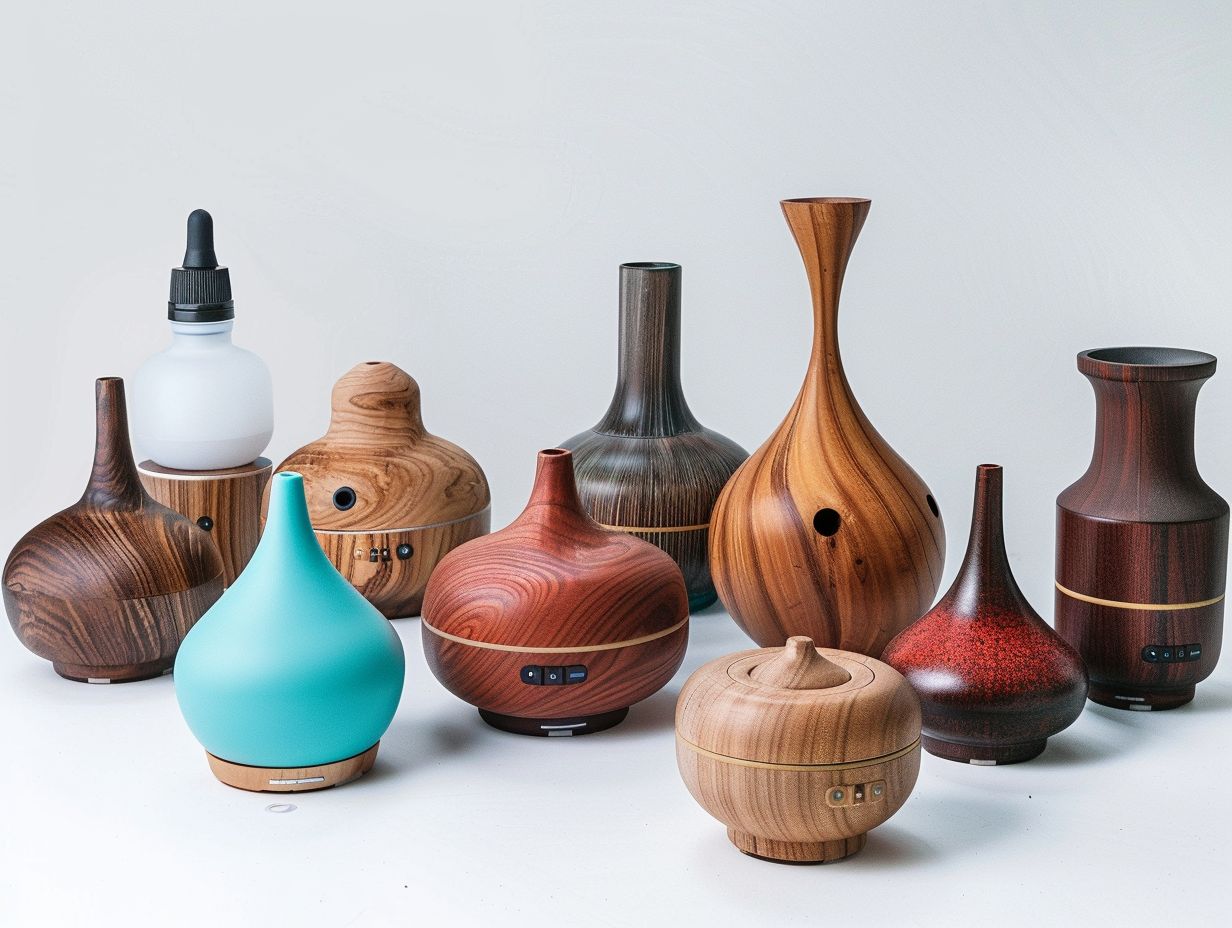
When heat is applied to essential oils in a diffuser, it accelerates the process of evaporation, causing the oils to disperse more quickly and create a more intense scent. This increase in temperature can impact the delicate balance of the oil’s constituents, potentially reducing their therapeutic properties. It’s important to consider this when choosing a heat diffuser, as certain oils may not respond well to high heat.
Essential oils contain volatile compounds that can be sensitive to heat, and excessive temperatures may cause them to degrade or lose their beneficial properties. Choosing a lower heat setting or intermittent use of heat diffusers can help preserve the integrity of the oils and ensure that their aromatic benefits remain potent. This careful approach can enhance the overall olfactory experience and maximize the wellness benefits of diffusing essential oils.
What Are the Safety Precautions When Using an Essential Oil Diffuser?
When using an essential oil diffuser, ensure proper ventilation in the room, dilute oils as needed, and avoid prolonged exposure to strong essential oil scents. Keep diffusers out of reach of children and pets to prevent accidental spillage or ingestion.
Proper ventilation is crucial as it helps prevent the essential oil vapors from becoming too concentrated, reducing the risk of irritation or adverse reactions. It’s recommended to dilute essential oils, especially potent ones like peppermint or eucalyptus, to minimize skin sensitivity or respiratory issues.
Position your diffuser on a stable surface away from edges and high-traffic areas to avoid accidental spills. Placing the diffuser at a height out of reach of pets and young ones ensures their safety.
Frequently Asked Questions
How Big of an Essential Oil Diffuser Do I Need?
The size of an essential oil diffuser depends on your personal preferences and the size of the space you want to fill with aroma. Generally, a diffuser with a tank capacity of 100-200 ml is suitable for smaller rooms and a tank capacity of 200-500 ml is ideal for larger spaces.
What factors should I consider when choosing the size of an essential oil diffuser?
Apart from the size of the room, you should also consider the run time and coverage area of the diffuser. If you want to use the diffuser for longer periods, a larger tank size is recommended. Similarly, if you want to cover a larger area with the aroma, a diffuser with a bigger tank size is more suitable.
Can I use a small diffuser in a large room?
Yes, you can use a smaller diffuser in a larger room, but it may not effectively disperse the aroma throughout the entire space. You may need to place the diffuser closer to where you are to fully experience the benefits of the essential oils.
What is the ideal tank capacity for a diffuser in a bedroom?
A diffuser with a tank capacity of 100-200 ml is generally recommended for a bedroom. This will provide enough run time to fill the room with a soothing aroma, without being overwhelming.
Is a larger essential oil diffuser better than a smaller one?
Not necessarily. The size of the diffuser does not determine its effectiveness. A smaller diffuser with a high-quality ultrasonic technology can still effectively disperse the aroma and provide the benefits of the essential oils.
Can I adjust the intensity of the aroma with the size of the diffuser?
Yes, the size of the diffuser can affect the intensity of the aroma. A larger diffuser with a bigger tank size can disperse more essential oils, resulting in a stronger aroma. However, most diffusers come with settings to adjust the intensity, so you can control the strength of the aroma regardless of the diffuser size.

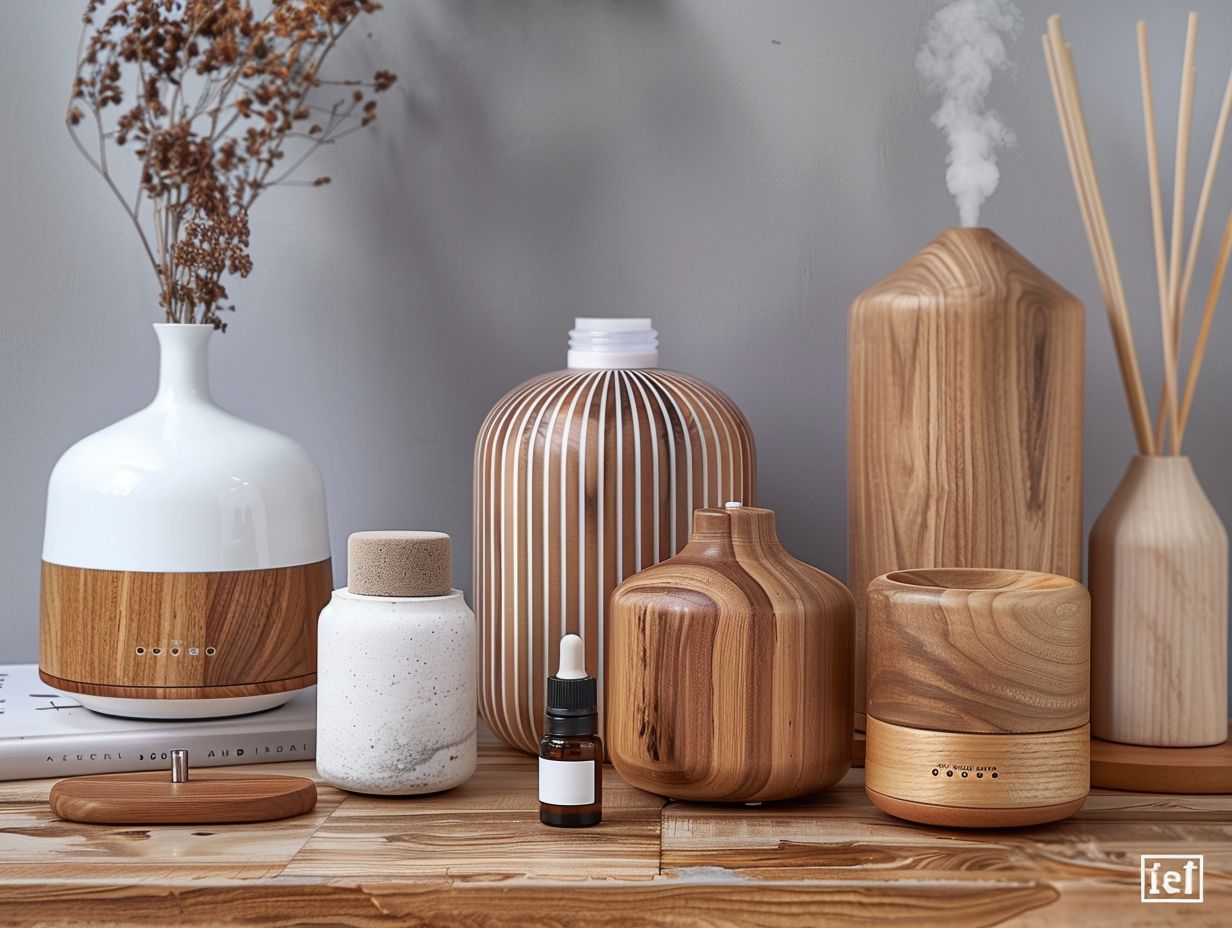
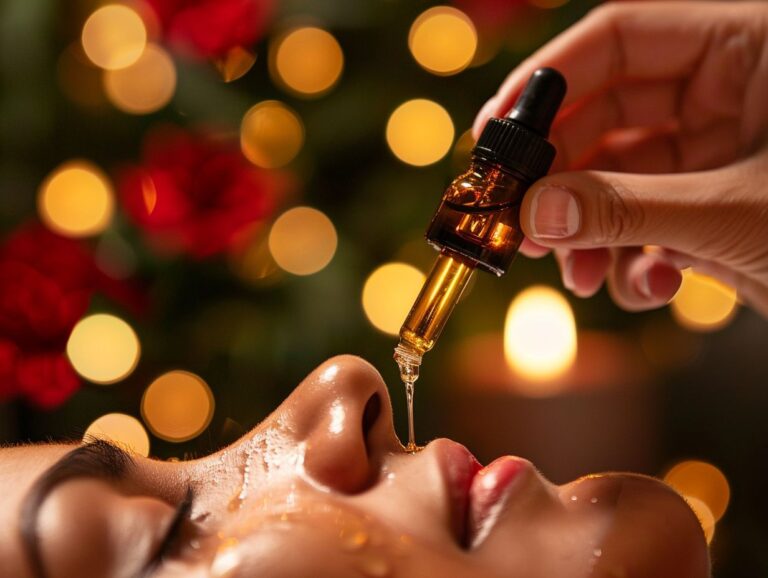
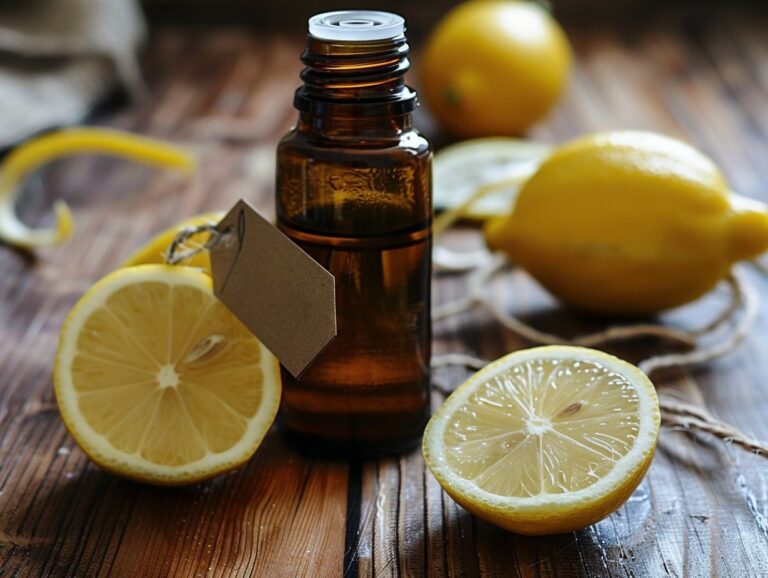
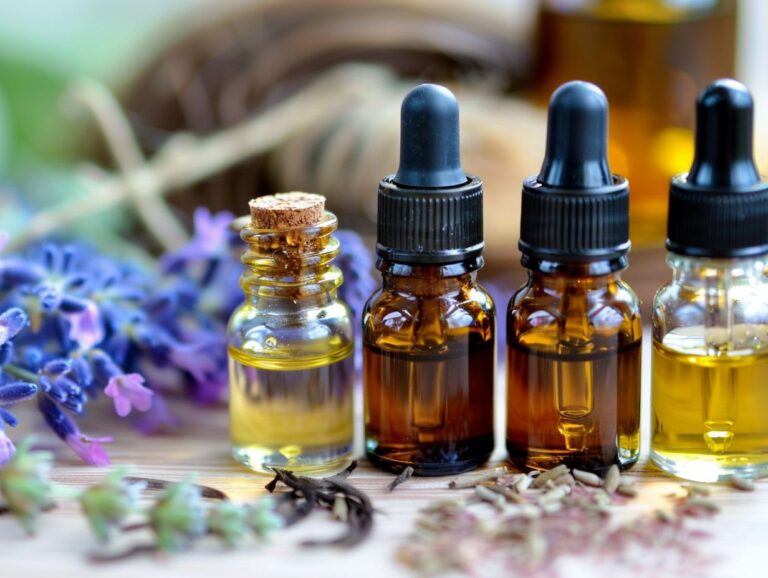

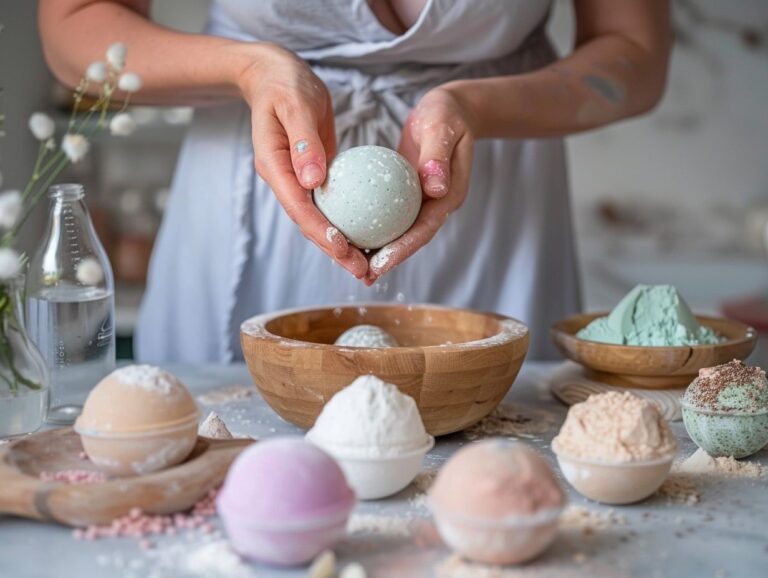
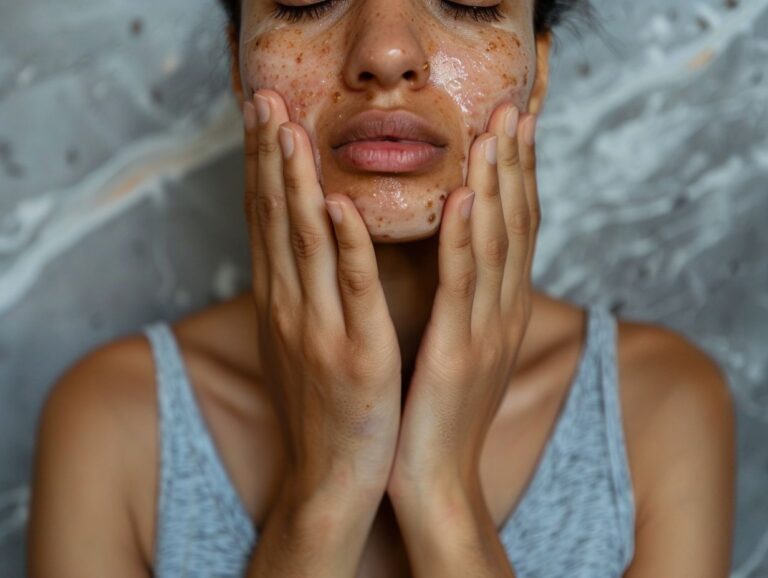
3 Comments